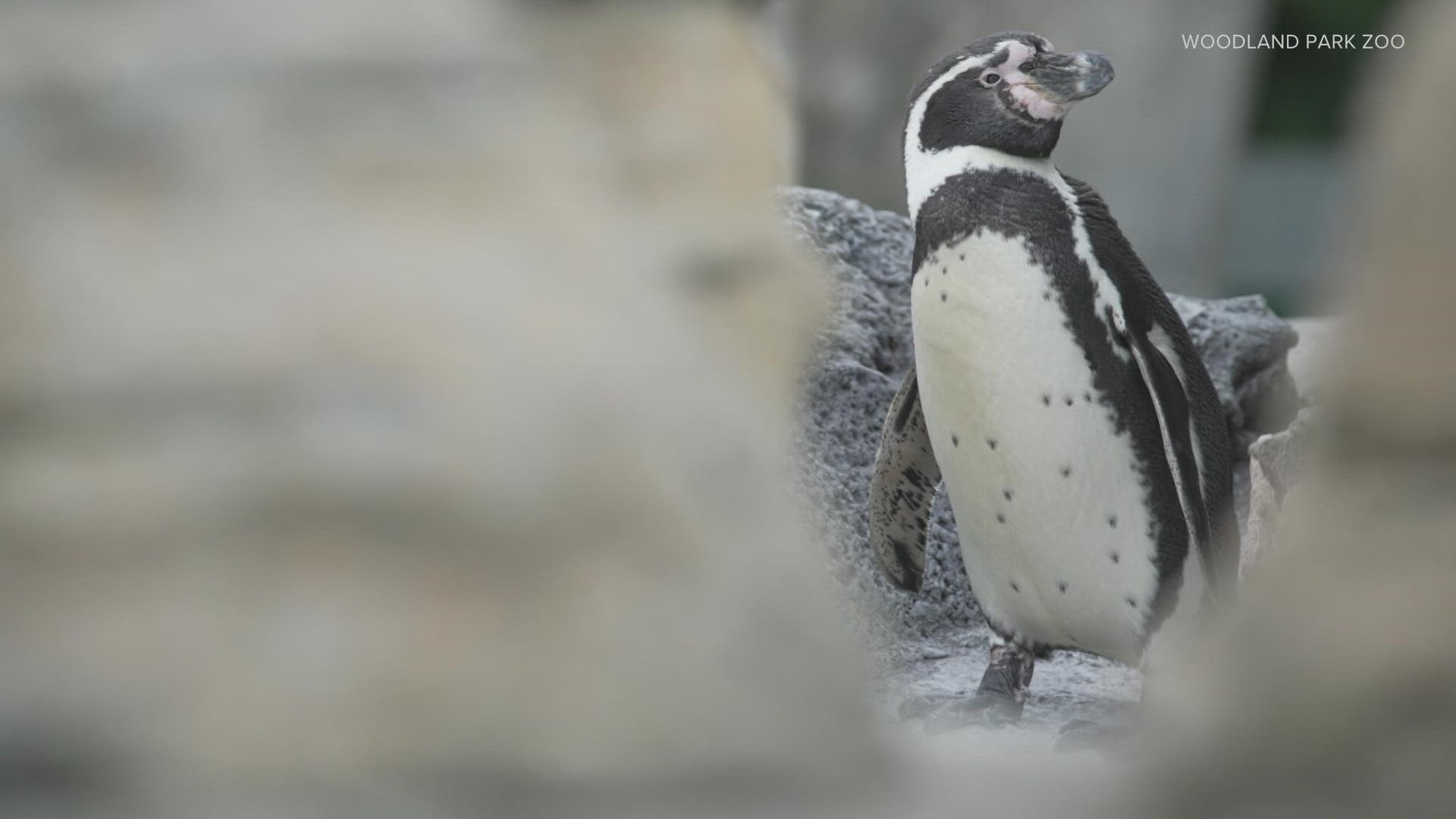SEATTLE — As a highly contagious and deadly strain of avian influenza continues to spread throughout Washington state, the Woodland Park Zoo is taking precautions to protect at-risk birds from being exposed.
As of May 12, there were no cases of pathogenic avian influenza (HPAI), a strain of H5N1, at the zoo.
The zoo moved highly susceptible avian species to indoor, protected housing. Those birds include raptors, peacocks, penguins, flamingos, cranes, chickens and related species, and waterfowl. For instances where it is not possible to relocate birds indoors, tarps or temporary roofs were placed over enclosures.
“Because avian influenza is transmitted by contact with infected wild birds or with their fecal matter, moving our birds inside and away from any other birds is the safest control measure we can take,” said Dr. Tim Storms, director of animal health at Woodland Park Zoo. “This is an alarming disease for birds with a high mortality rate which requires proactive measures."
Walk-through aviaries are closed to visitors until further notice to decrease the risk to the birds inside. The zoo also suspended up-close contact with its ambassador birds, such as owls, hawks, and other raptors. Wildlife Theater will exclude free-flying birds in its programming. The Tropical Rain Forest building is closed because of its walk-through aviary, which serves as a corridor for visitors exiting the building.
“We know many of our visitors will be disappointed they won’t be able to see birds that are most at risk of avian flu, especially our popular penguins and flamingos,” said Sheri Horiszny, chief operations officer at Woodland Park Zoo. “We are confident our visitors and members will understand we have our animals’ best interests in mind and understand our decision to keep our birds indoors and protect them from the highly contagious and potentially deadly avian influenza. We have many other captivating animals for visitors to enjoy such as our new sloth bear cubs, otters, big cats and young, playful gorillas.”
HPAI is very contagious and deadly among chickens and is currently spreading throughout U.S. poultry flocks. Since the first case of the H5N1 was announced in Washington state on May 5, at least six counties have had confirmed infections and several other suspected cases are being investigated, according to the Washington State Department of Agriculture.
According to the Centers for Disease Control and Prevention, HPAI infections have a 90-100% mortality rate in chickens, affecting multiple internal organs and causing death within 48 hours.
As of late April, the U.S. Department of Agriculture’s Animal and Plant Health Inspection Service has recorded animal infections in more than two dozen states.
If bird owners see any signs of influenza, including multiple sick birds and sudden deaths, they are asked to call WSDA's sick bird hotline at 1-800-606-3056 or visit the department's online reporting tool.

